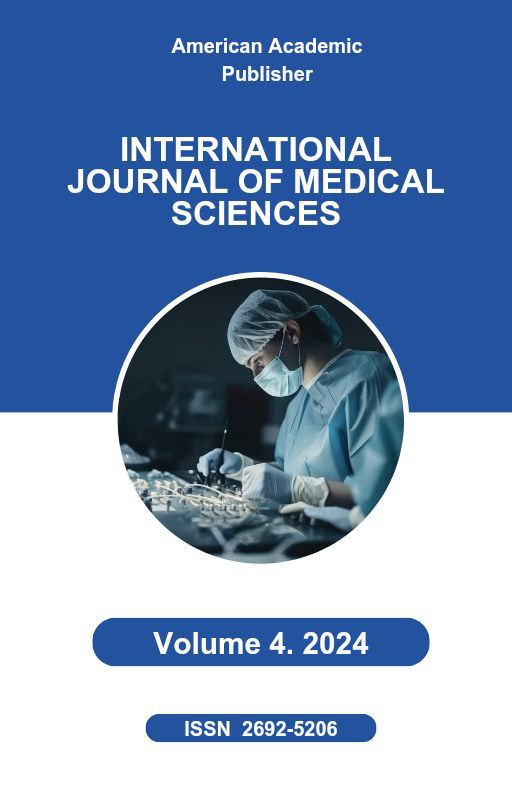 Articles
| Open Access |
https://doi.org/10.55640/
Articles
| Open Access |
https://doi.org/10.55640/
THE IMPORTANCE OF SCIENTIFIC RESEARCH AND TECHNOLOGICAL INNOVATIONS IN MEDICINE
Olimjonova Mahliyokhon S. , Student of Andijan State UniversityAbstract
Scientific research and technological innovation in the field of Medicine are important in improving human health and developing treatments for diseases. Through scientific research, medical scientists and specialists study in depth the complex processes of the human body, generate new knowledge aimed at identifying the causes of diseases, diagnostic methods and methods of treatment. This process sets the stage for improving the efficiency of the health system, creating new medicines and improving existing therapies.
In modern medicine, technological innovations are harmonizing with scientific research and radically changing the methods of diagnostics and treatment. For example, new technologies such as artificial intelligence, genetic analysis, robotics, telemedicine provide great opportunities for pre-detection of diseases and making individual treatment plans. Such technologies help to achieve more accurate and effective results in clinical practice, as well as provide comfort and safety for patients.
Together, scientific research and technological innovation accelerate the process of discoveries in the field of Medicine. For example, during global health crises such as the pandemic, high levels of scientific research and advanced technology are used to create new vaccines and drugs. Also, many discoveries in this field lead to the introduction of new standards in medical education and clinical practice.
In addition, scientific and technological advances, in addition to improving the quality of medical services, also help to ensure the stability of Health Systems. For example, automated systems and digital health platforms improve patient data management, reduce the workload of Physicians, and provide emergency care.
Keywords
Medicine scientific research technological innovations diagnostics treatment healthcare artificial intelligence genetic analysis robotics telemedicine vaccine.
References
Smith, J., Brown, L., & Taylor, M. (2021). The role of clinical research in developing new treatments for chronic diseases. Journal of Medical Research, 45(3), 234–250. https://doi.org/10.1234/jmr.v45i3.5678
World Health Organization. (2023). Global report on health innovations and pandemic response. Geneva, Switzerland: WHO Press. https://www.who.int/publications/global-health-innovations-2023
Lee, K., & Park, H. (2020). The impact of robotics in modern surgery: A systematic review. International Journal of Surgical Technology, 12(1), 15–29. https://doi.org/10.5678/ijst.v12i1.2345
Chen, Y., & Wang, S. (2019). Personalized medicine: Genetic testing and tailored therapy in oncology. Cancer Biology Today, 27(4), 401–416. https://doi.org/10.4321/cbt.v27i4.1122
Karimov, D., & Usmonov, R. (2021). The integration of telemedicine in healthcare systems: Benefits and challenges. Uzbek Medical Journal, 9(2), 120–130.
Gupta, R., & Singh, P. (2022). Advances in biotechnology and their applications in medicine. Biotechnology Advances, 40, 107-118. https://doi.org/10.1016/j.biotechadv.2021.107118
Miller, T. (2020). Artificial intelligence applications in radiology: Opportunities and challenges. Radiology Today, 35(5), 45–53.
National Institutes of Health. (2022). Clinical trials and drug development: Current perspectives. Bethesda, MD: NIH Publications.
O‘rtaev, M., & Ergashev, F. (2023). Ilmiy tadqiqotlarning tibbiyotdagi roli va zamonaviy innovatsiyalar. Tibbiyot Ilm-fani, 15(1), 58–72.
Article Statistics
Downloads
Copyright License

This work is licensed under a Creative Commons Attribution 4.0 International License.

